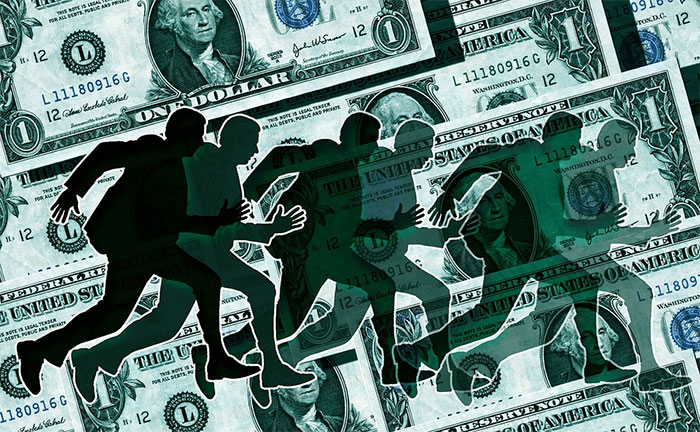Table of Contents
Emergency Business Fund
If you run a business, you will need to make sure you can cover any eventuality, no matter what happens. Having contingency plans just in case will make your business stronger and more enjoyable to work on because you know you will be able to weather almost any storm. Having an emergency business fund is one of the ways that you can prepare for the worst. Here are some of the main reasons why you might need one.

Your Debt Is Collected
Many businesses will have some kind of debt. This is an absolutely normal way to work, and it is especially usual right at the start of your business life. Without a loan, instant approval loans, an overdraft, or borrowing on a credit card, many businesses could not get off the ground, to begin with. However, if a loan is called in early for any reason, or it would make sense to pay it off more quickly to save on the interest, then your emergency business fund will be extremely useful. Rather than worrying about your debt, you can deal with it quickly and easily.
Whenever you borrow money, it is important to check the small print to ensure that you will be able to pay it back on time.
Low Profits
Some businesses are profitable all year round, but others will have peaks and troughs, meaning that at some times of the year, business is better than at others. If this is the case for you, or if your particular market sector crashes, or you lose a major client for example, and your profits are lower than you really need to continue your business, an emergency business fund, created when you were making more money, can come to the rescue.
The emergency fund can be the money that stops the gap between what you should be making and what you are making in reality. You could use this money to continue to run the business, or perhaps you might make use of it by implementing a new advertising campaign to boost sales once more. If you always have money set aside to see you through the hard times, your business should be able to continue no matter what.
Overstock
Mistakes can happen at any stage of a business’s development, and ordering too much stock is something that is easy to do. If all indications are that it is a good time to buy a lot of stock of something because you anticipate selling a lot of it, then that is what you will do. However, other factors may mean that this idea doesn’t always work so well – demand might be much lower than expected, for example. You will then be left with excess stock that is difficult to sell. This leads to another problem in that you will have no money available to buy things that people actually want.
Unless, of course, you have an emergency business fund. If you do, you can sell the excess stock at a low price, perhaps even a loss, and still afford to buy new stock of something else.
Client Credit
When working with other businesses, it is usual to offer extended credit terms such as 30, 60, or perhaps 90 days. However, just because you offer those terms and they are accepted, it doesn’t mean that those clients are actually going to pay on time. When that happens, and payment is delayed, this can have a serious effect on how well you are able to pay your own suppliers. This can, in turn, limit your buying power, or even cause your suppliers to ask for upfront payments in future.
Your emergency business fund can be used to pay your suppliers on time while you are waiting for your clients to pay. This way, you don’t lose your good reputation, and you can keep trading. When the client does eventually pay, you can put their money back into the emergency fund to keep it topped up. Although it’s not ideal when this happens, sometimes it is necessary, so it’s better to have that emergency money than not.
Remember, when it comes to extending credit to another company, you must research them first. If they have a poor reputation for paying it might be better to ask them to pay upfront so that you don’t risk too much with them.
Taxes
Businesses need to pay taxes, and although you should have a reasonable idea of what your tax bill should be, sometimes that amount can be difficult to find, especially if the bill comes at a particularly difficult time when profits are low, or you’re waiting for clients to pay you. Having that extra money put to one side that can be used to pay your bill on time and therefore not incur any penalties can be exactly what is needed. Your tax bill will need to be paid no matter what, so it is a wise idea to have the money for it.
Your Fleet
If your business needs a fleet of vehicles (or even just one vehicle), what would happen if one broke down and was out of use? Would it impact your business and ability to trade? The answer is probably yes. Repairs can be expensive, and can really eat into your bank account. Although you will have to get the car or truck fixed, spending that money can put you in a bad position when it comes to your finances. An emergency fund is ideal for this kind of situation – you can use that money to fix the vehicle, or potentially even buy a new one, and nothing else will have to suffer or be compromised on.
This is as true for other equipment as it is for vehicles. If you need a piece of equipment to run your business and make money and that equipment stops working, it is essential to get it fixed, and therefore your emergency fund can be used to ensure your business doesn’t have to stop completely.











Leave a Reply